When it comes to maintaining a clean and safe swimming pool, there are multiple sanitization options available. Two popular choices are pool ionizers and saltwater chlorinators, but they work in fundamentally different ways. If you're considering a Westaho pool system, it's essential to understand these differences to choose the best solution for your needs.
How a Pool Ionizer Works
A pool ionizer, such as those offered by Westaho, uses copper and silver ions to sanitize the water. These ions are released into the pool through an electrolytic process, effectively killing algae and bacteria.
Key Features of Westaho Ionizers:
- Low chlorine dependency – Reduces the need for traditional chlorine.
- Gentler on skin and eyes – Ideal for people with chlorine sensitivities.
- Long-lasting purification – Ions remain active in the water for extended periods.
- Prevents algae growth – Copper ions are highly effective against algae.
However, ionizers do not eliminate the need for chlorine entirely. A small residual amount is still recommended to ensure complete sanitation.
How a Saltwater Chlorinator Works
A saltwater chlorinator (also called a salt chlorine generator) converts dissolved salt (NaCl) into chlorine through electrolysis. This system produces hypochlorous acid, the same sanitizing agent found in traditional chlorine pools, but in a more controlled and steady manner.
Key Features of Saltwater Chlorinators:
- Produces its own chlorine – No need for frequent chlorine tablet purchases.
- Softer water feel – Many users prefer the feel of saltwater pools.
- Continuous sanitization – Automatically maintains chlorine levels.
- Requires higher salt concentration – Typically 2,500–4,000 ppm.
Unlike ionizers, saltwater systems still rely on chlorine as the primary sanitizer, which can sometimes cause irritation for sensitive swimmers.
Westaho's Approach: Which Is Right for You?
Westaho offers advanced ionization systems that provide a low-chlorine alternative to traditional pool sanitation. If you want:
✔ Minimal chlorine use
✔ Reduced chemical odors
✔ Long-lasting algae prevention
…then a Westaho ionizer may be the best choice.
However, if you prefer:
✔ A self-generating chlorine system
✔ A saltwater pool experience
✔ Automated sanitization
…a saltwater chlorinator might be more suitable.
Final Thoughts
While both systems improve pool maintenance, they operate differently. Westaho’s ionizers focus on metal-ion purification, reducing but not eliminating chlorine, whereas saltwater chlorinators generate chlorine directly from salt. Your choice depends on your preferences for water feel, maintenance, and chemical use.
For more details on Westaho’s innovative pool solutions, visit their official website or consult a pool specialist today!




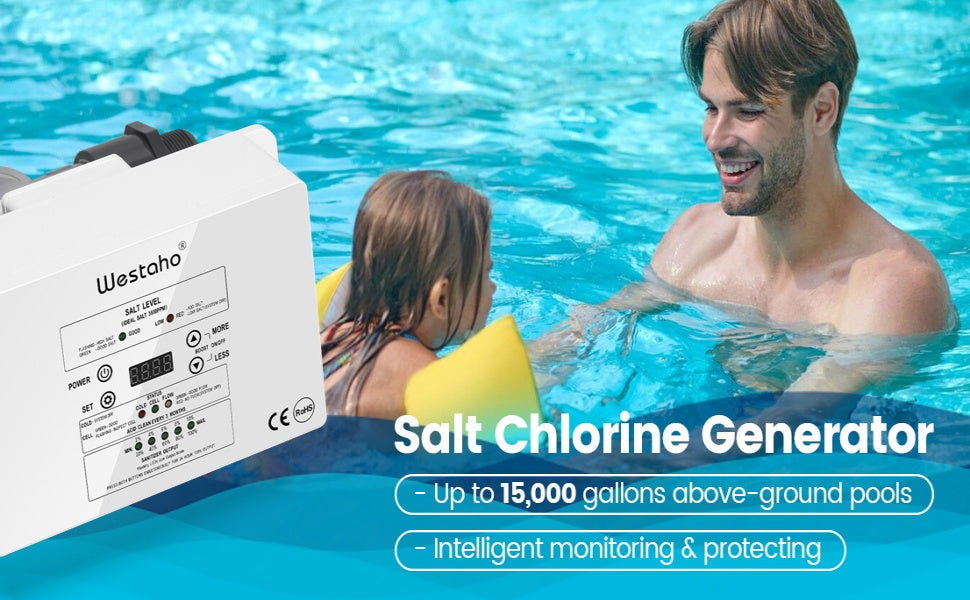
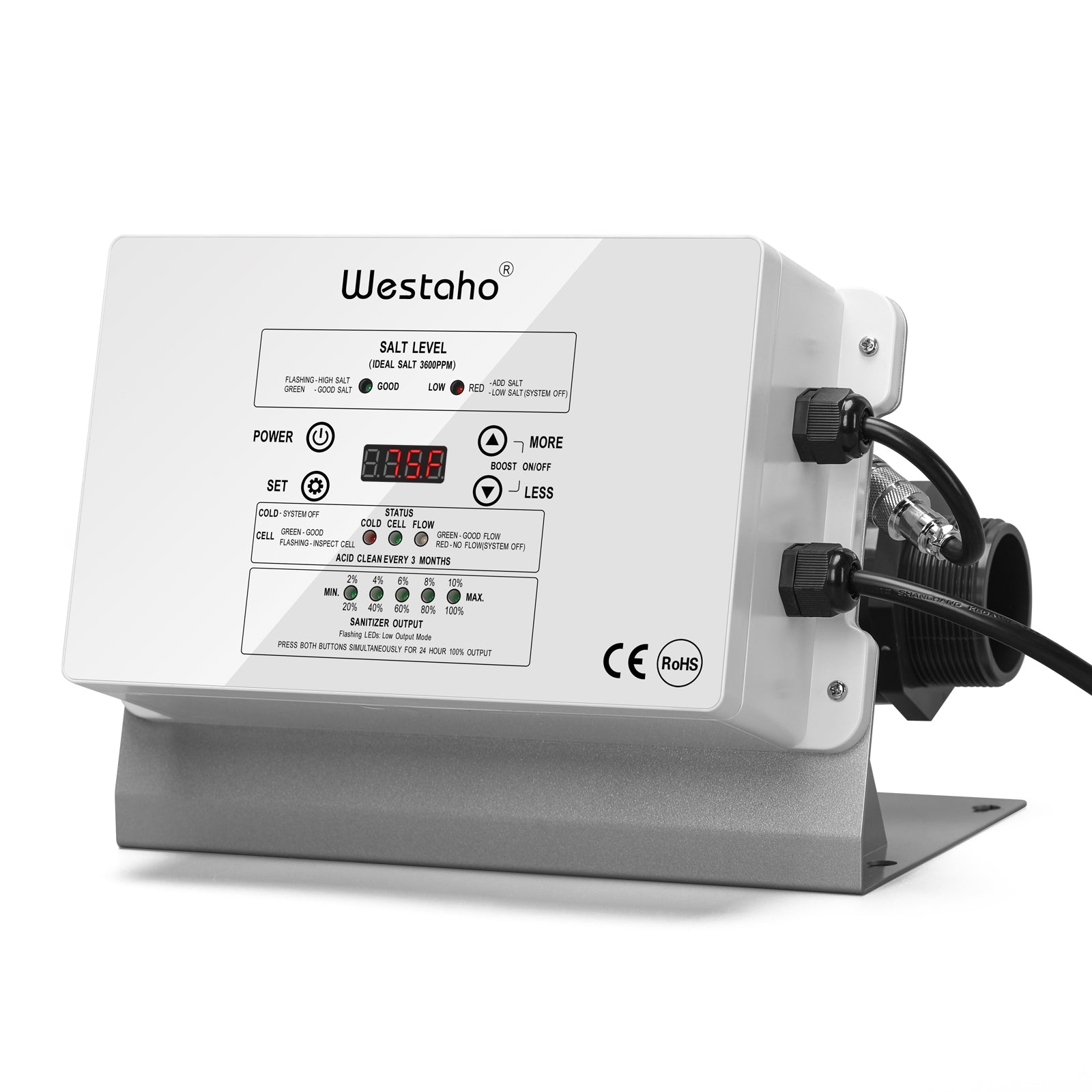
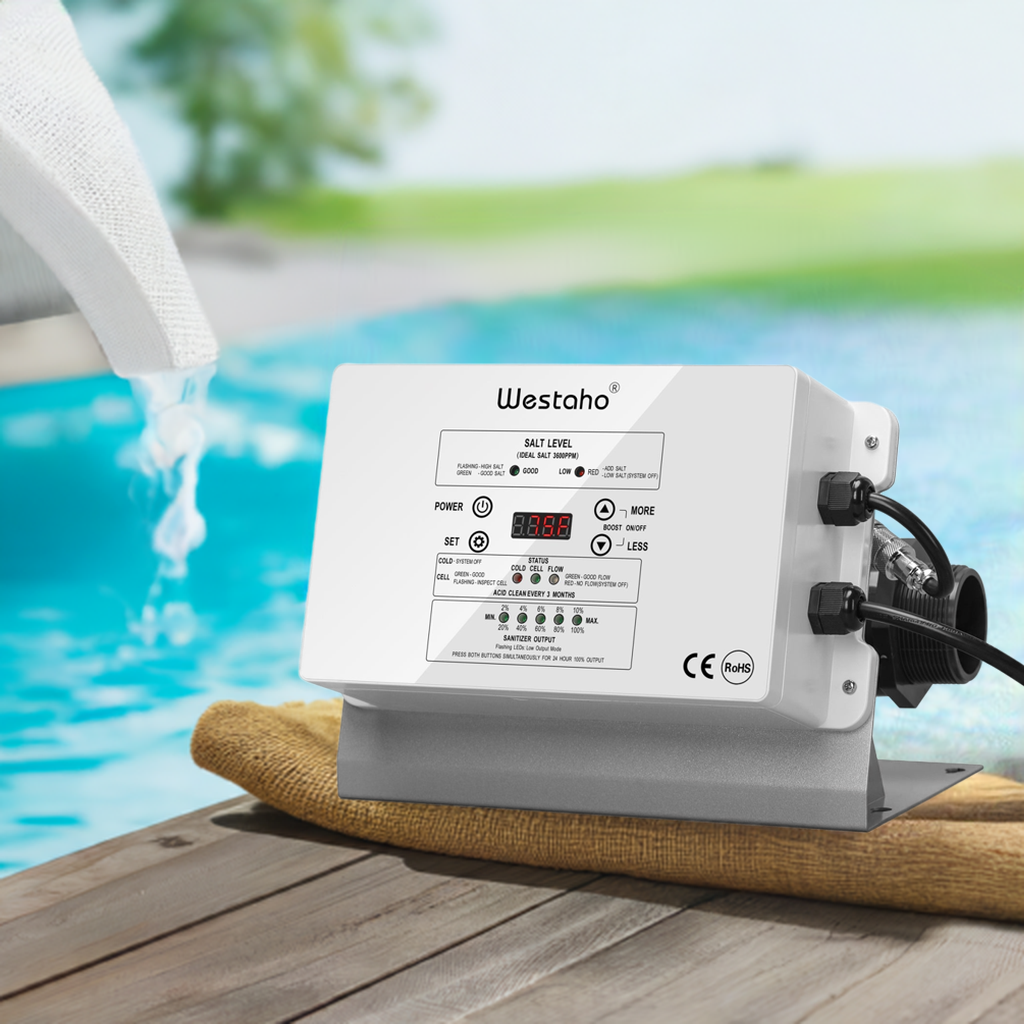
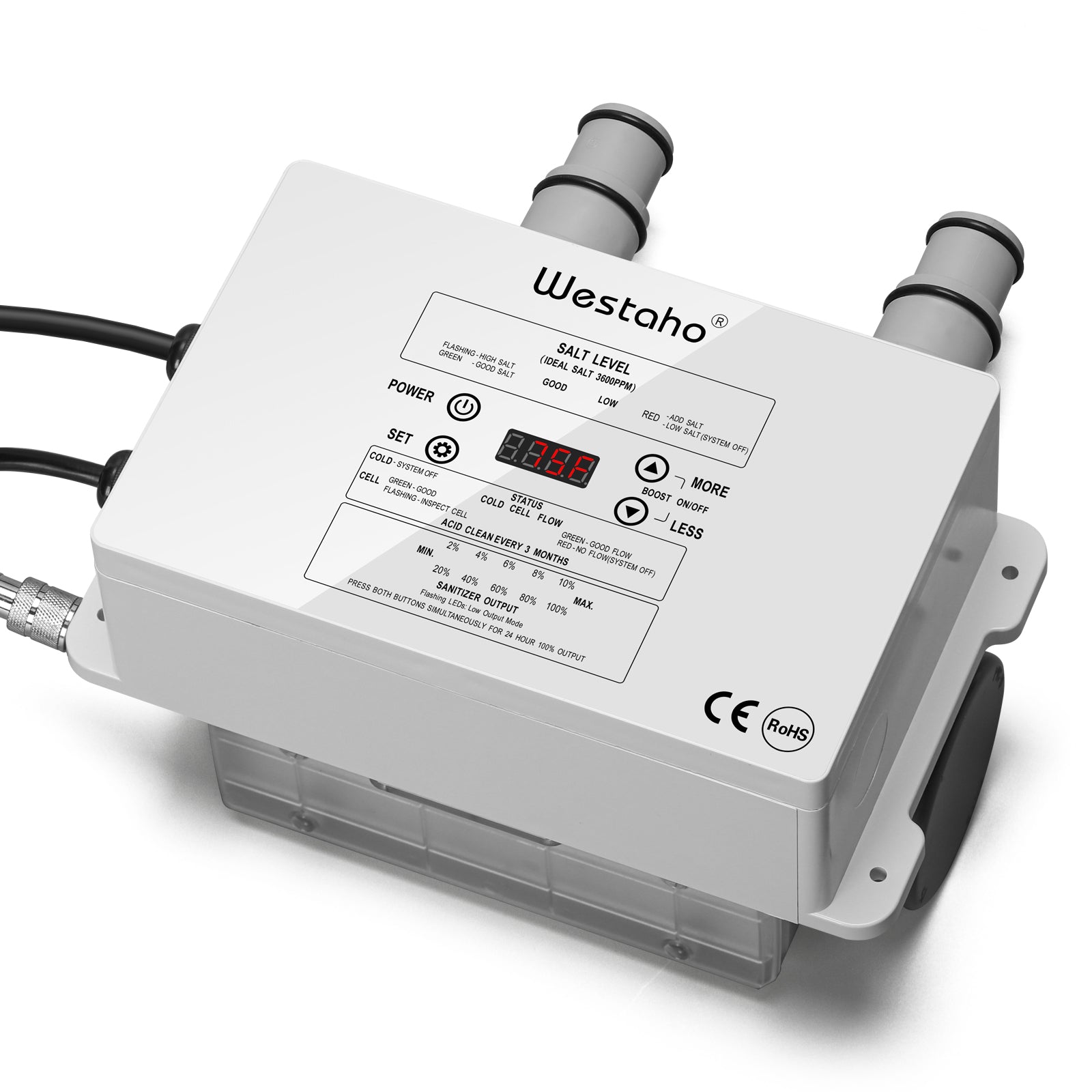
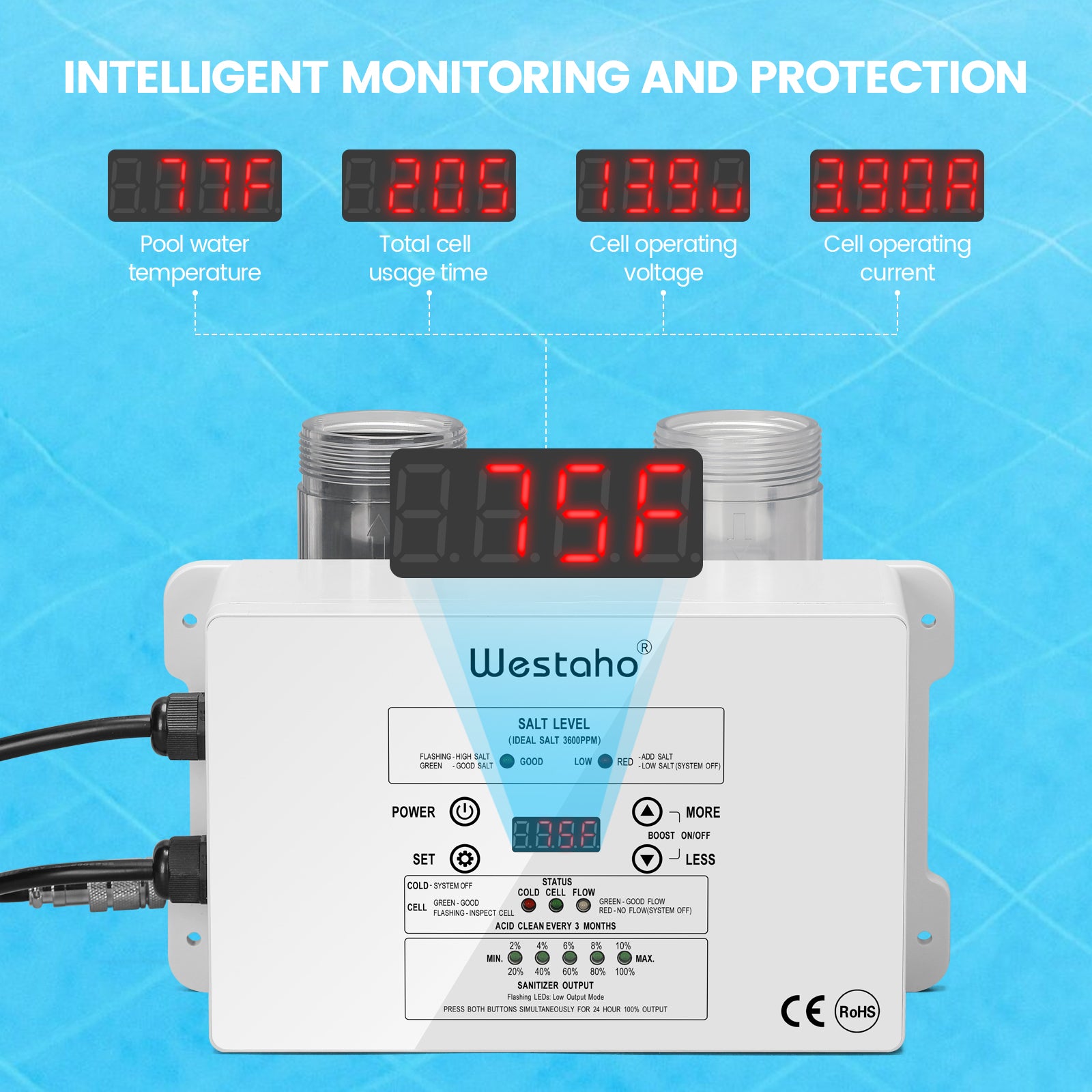
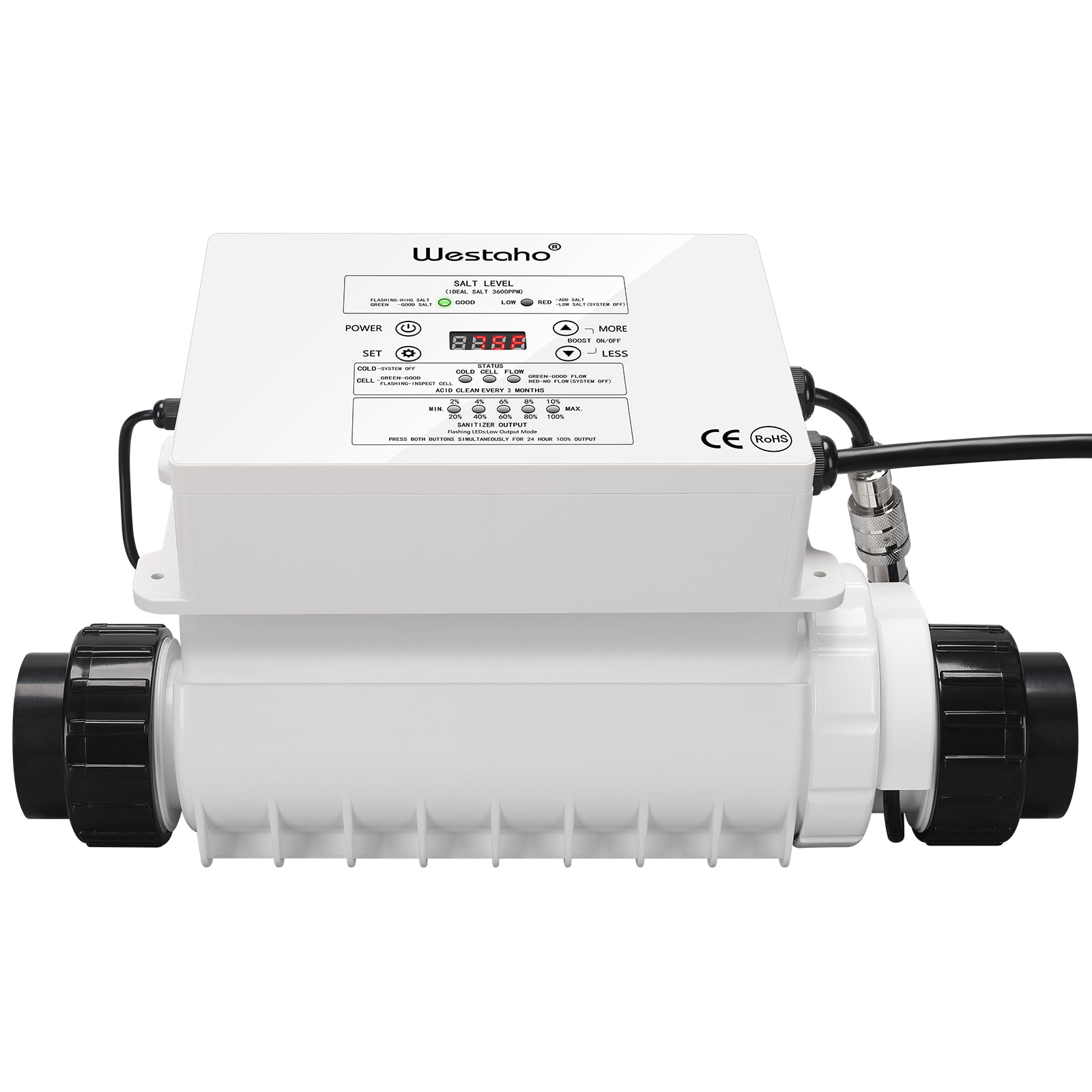

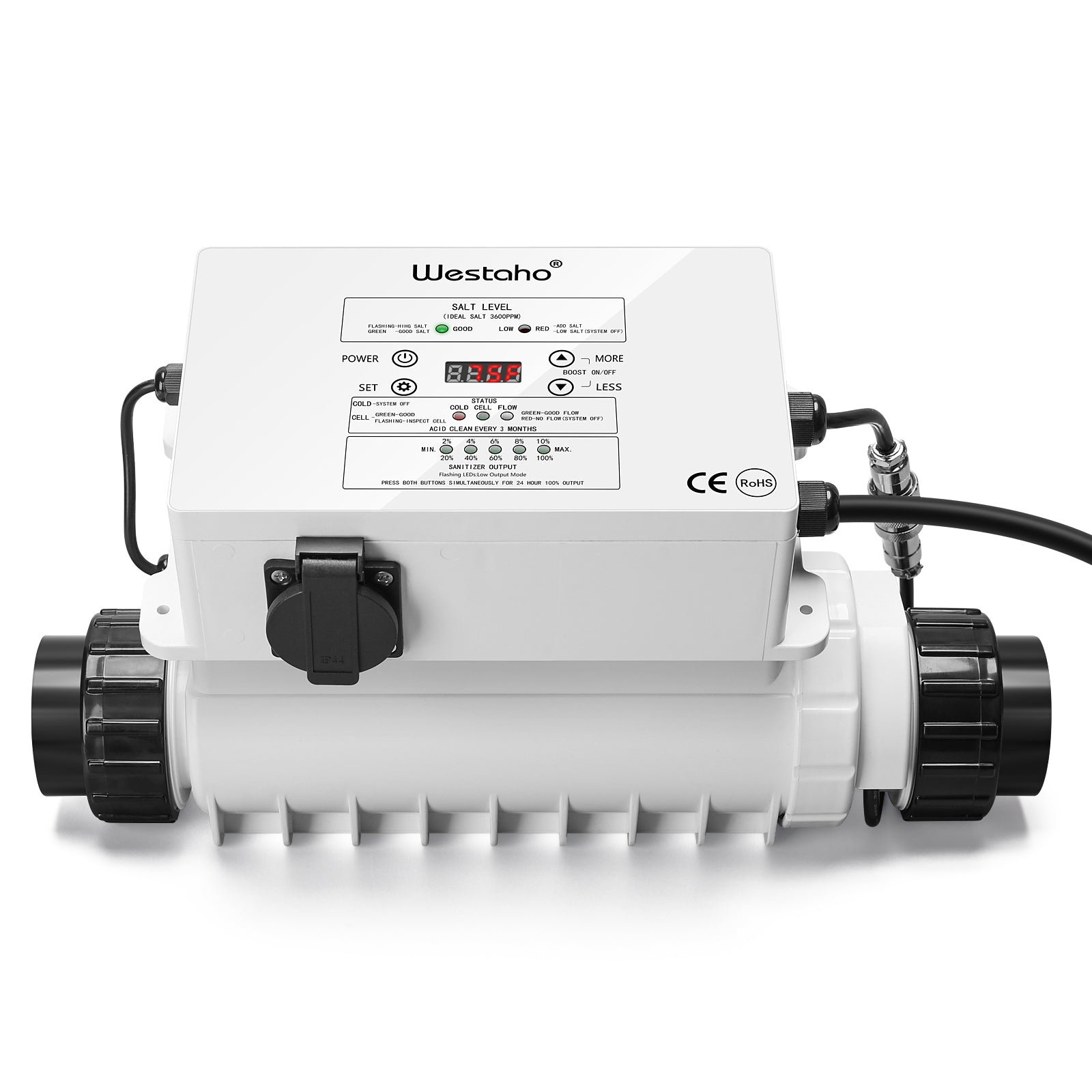
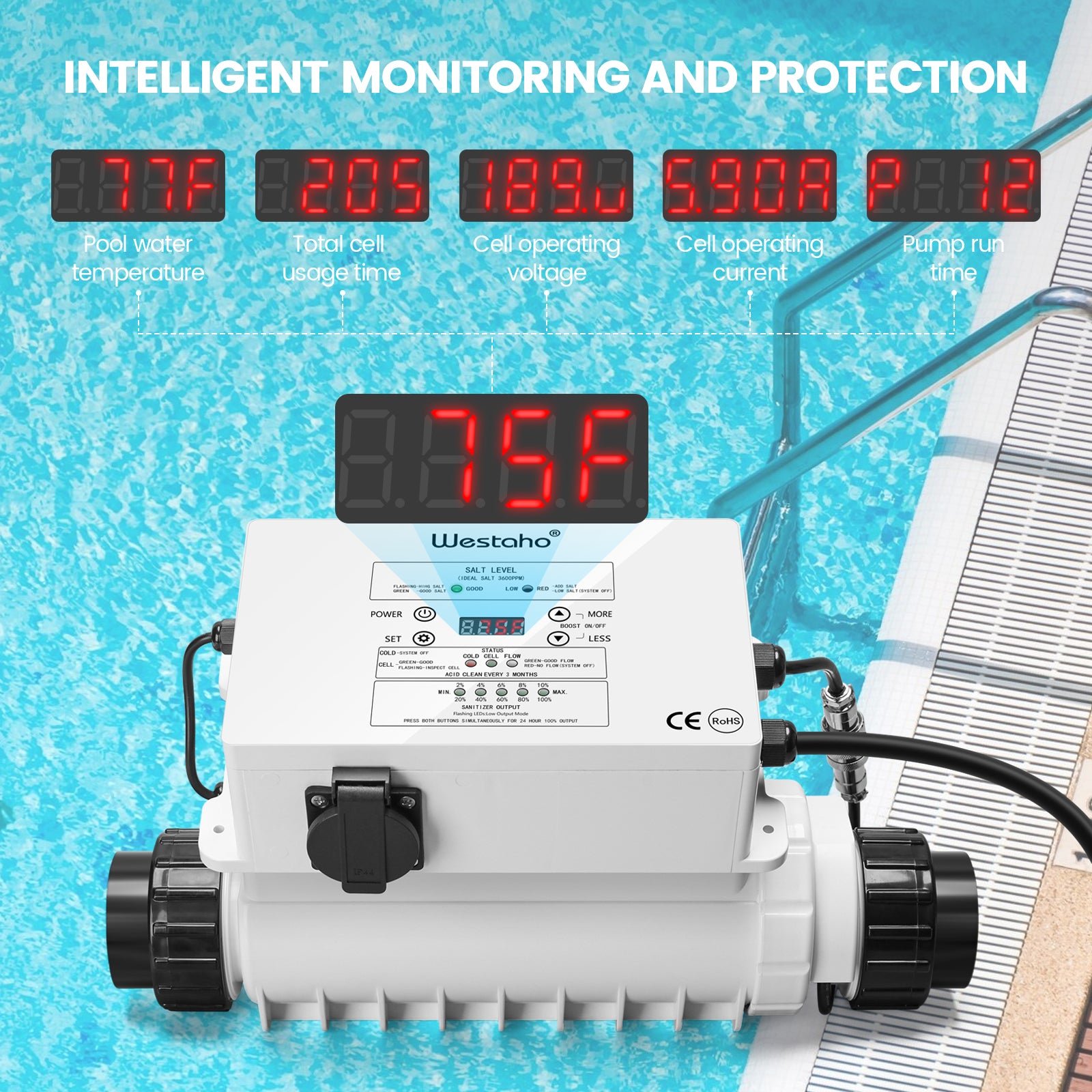
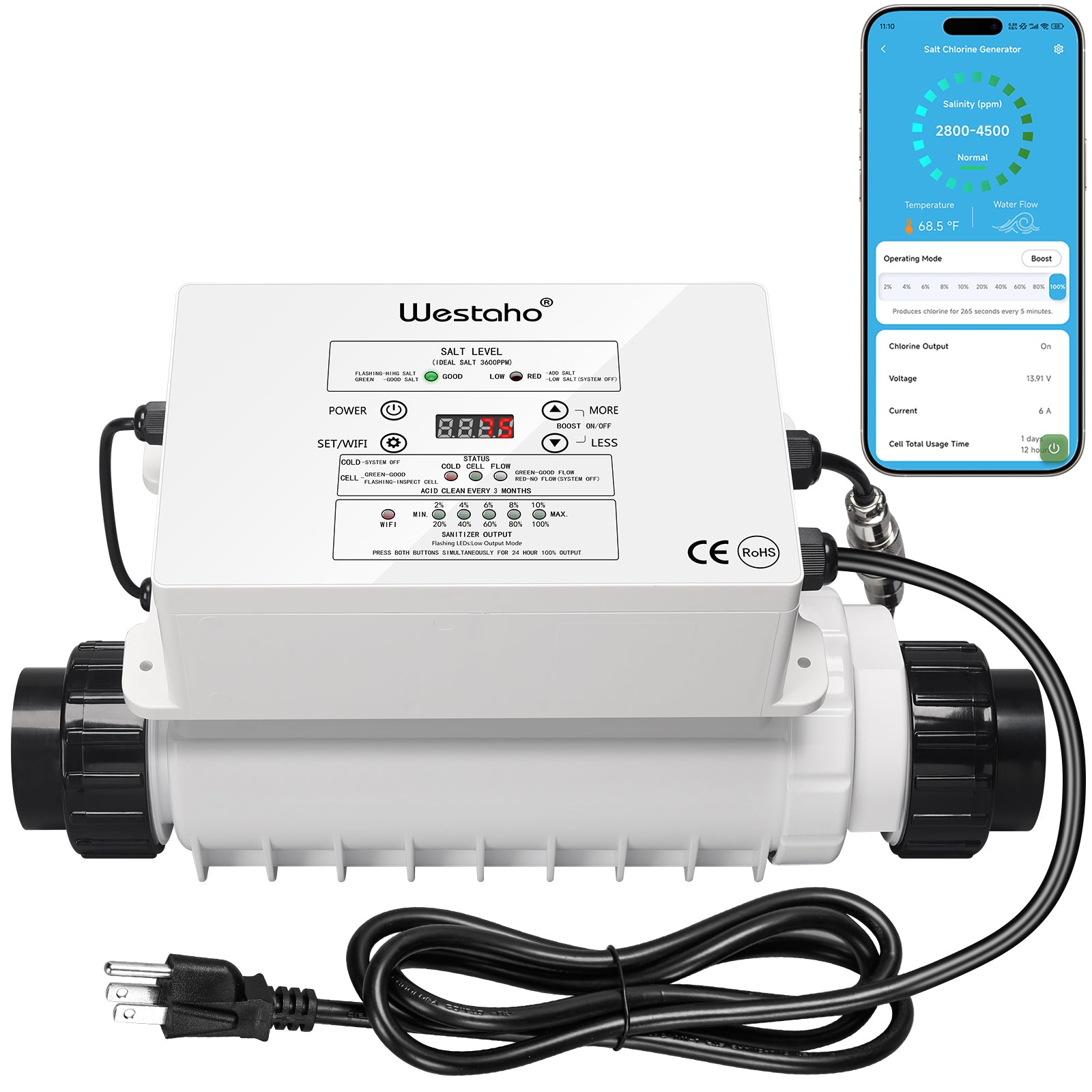

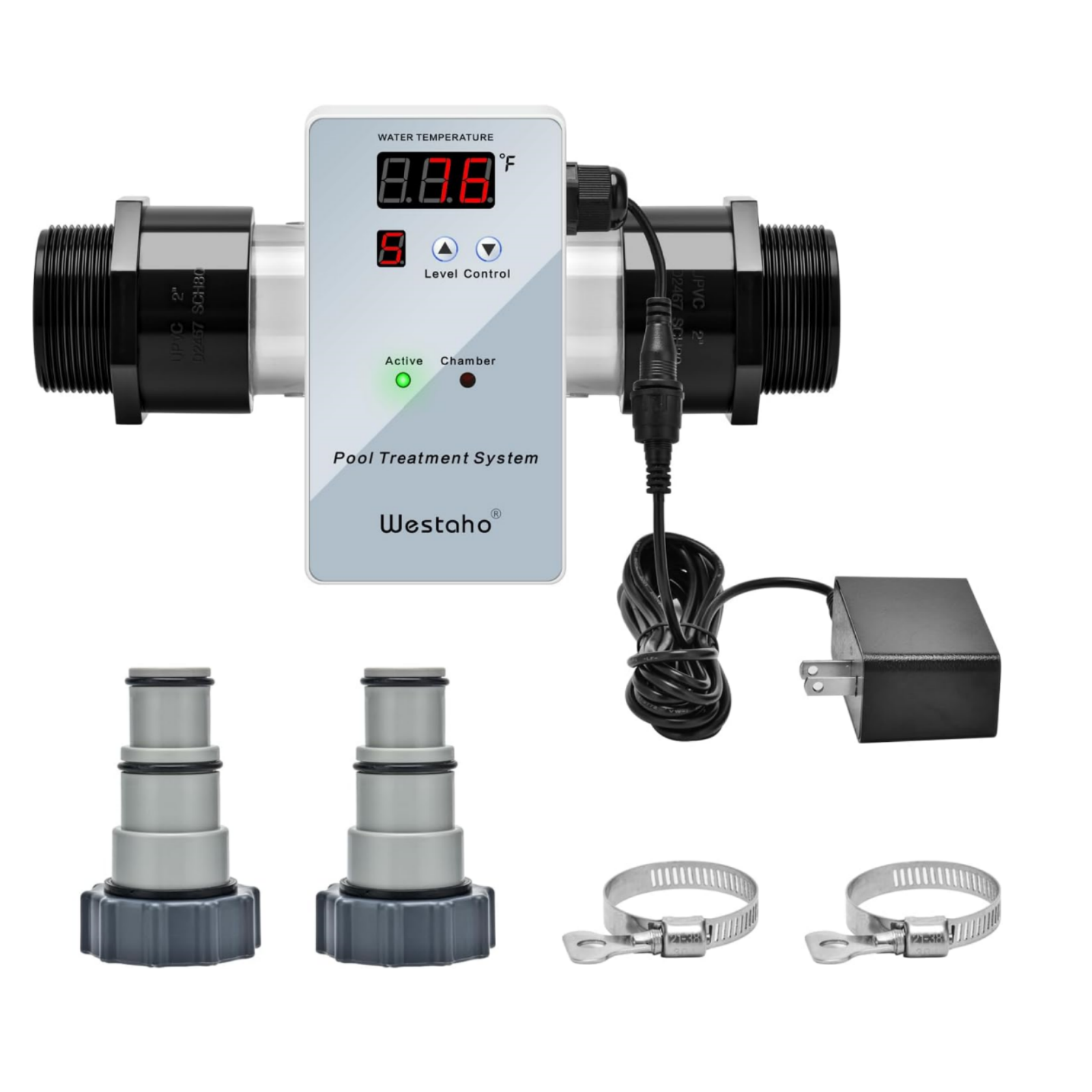
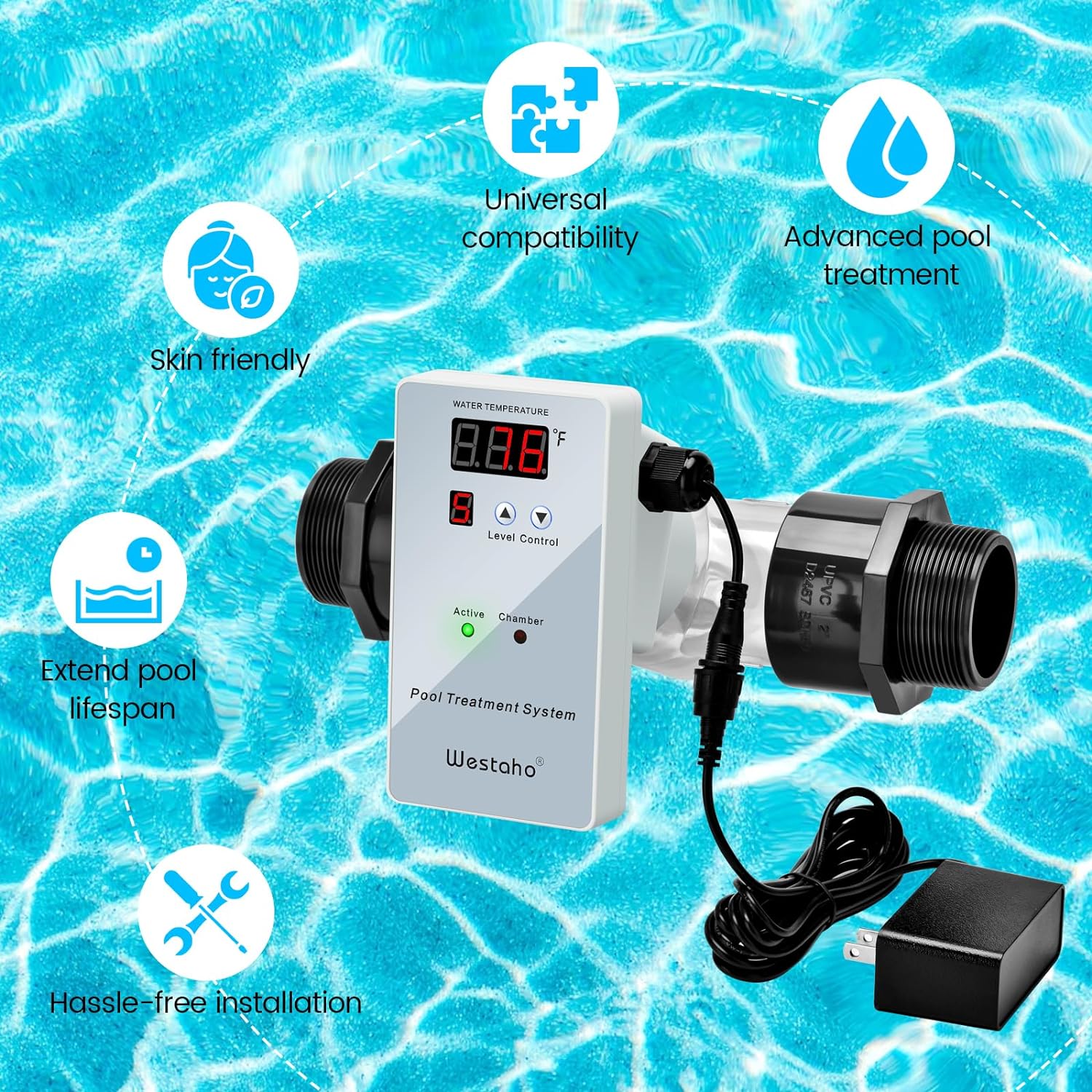
Leave a comment
This site is protected by hCaptcha and the hCaptcha Privacy Policy and Terms of Service apply.